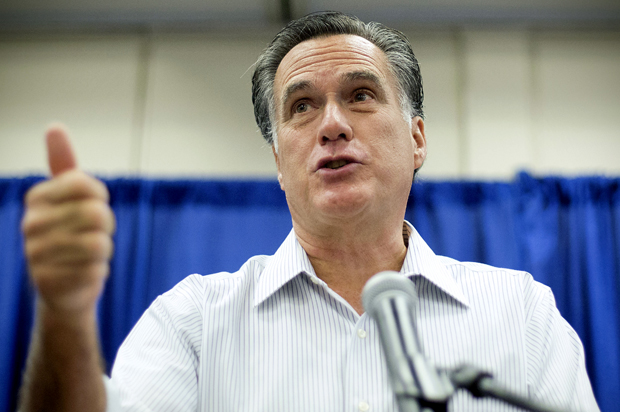When most political observers hear someone say “the 47 percent video,” it will most likely remind them that during the 2012 presidential campaign, GOP nominee Mitt Romney told a group of high-level donors behind closed doors that 47 percent of Americans would support President Obama no matter what, because they were government freeloaders who saw themselves as “victims” deserving of a handout.
Those remarks solidified the electorate’s view that Romney was an out-of-touch plutocrat who didn’t care too much about the plight of the poor or the middle class, and they probably contributed to Romney’s defeat that year.
But what has largely gone unnoticed from that video is that within it lies the seeds of the disaster that the politicization of the Sept. 11, 2012 attacks on U.S. diplomatic and intelligence outposts in the Libyan city of Benghazi has become. That disaster culminated in last week’s epic 11-hour House Republican grilling of 2016 Democratic presidential hopeful Hillary Clinton, who left the hearing largely unscathed, and even by many accounts, in a better position than when it started.
The story begins on September 17, 2012, when Mother Jones published the “47 percent” video, which was taken from $50,000-a-plate dinner in Boca Raton, FL on May 17 of that year. Romney fielded questions from various donors during the event. The video shows that one donor suggested that the former Massachusetts governor use the Iranian nuclear crisis (which was at the time unresolved) in the way Ronald Reagan had taken advantage of the hostage crisis in Iran during the 1980 campaign against President Carter (in fact, Reagan had refrained from making it a campaign issue at the time).
Still, Romney took the bait.
“[I]n the Jimmy Carter election, the fact that we have hostages in Iran, I mean, that was all we talked about. And we had the two helicopters crash in the desert, I mean that was the focus, and so him solving that made all the difference in the world.” Romney replied. “But, by the way, if something of that nature presents itself, I will work to find a way to take advantage of the opportunity.”
Four months later, the Romney campaign saw that opportunity after terrorists attacked two American outposts in Benghazi, killing U.S. ambassador Chris Stevens and three other Americans.
Just hours after the attacks, and without seeming to consider how politicizing such an event so soon after it occurred would look, Romney pounced. “It’s disgraceful that the Obama administration’s first response was not to condemn attacks on our diplomatic missions, but to sympathize with those who waged the attacks,” he said in a statement.
Romney was referring to the early suggestion by Obama administration officials that the attack may have been in response to an anti-Islam video that had sparked similar protests and violence in Egypt, a theory that would later come back to haunt the White House.
Republicans of all stripes thought Romney had gone a bit too far in suggesting that the President of the United States “sympathized” with the terrorists who had just killed four Americans. However, Romney’s campaign stood by the statement.
But what’s most important about this episode is that Romney set the precedent of inserting Benghazi into American politics, thereby paving the way for Republicans to exploit it during the campaign and beyond.
That strategy took hold when then-U.S. Ambassador to the U.N. Susan Rice drew the short straw and had to appear on that week’s Sunday shows to pass along the White House’s talking points on the Benghazi attacks. According to those talking points – which Rice said were based on “the best information” at that time – the attacks were not a premeditated assault, but rather spontaneously inspired by the anti-Islam video (it was later revealed that some of the attackers were indeed motivated by that video).
With Romney’s attack line losing steam within the party, Rice’s Sunday show appearance provided the fuel Republicans and their conservative allies needed to continue to politicize Benghazi. They cried of a Watergate-style cover-up — of what, it wasn’t clear, but the charge appeared to be that the White House’s explanation for why the terrorists attacked the American facilities in Benghazi was shifting from a spontaneous attack to a premeditated one, or something in between. But why that amounted to a cover-up or something nefarious was unclear given that it’s entirely possible and understandable that that explanation would change as new information from a chaotic event emerged.
Nevertheless, Republicans needed something to boost Romney’s campaign so the “scandal” just would not die.
Of course, in the end, this strategy failed and Obama won a second term. But Benghazi lived on.
Sen. John McCain (R-AZ) led an all out campaign to derail Susan Rice’s (non-existent) bid to become the next Secretary of State after Clinton based on Benghazi and her Sunday show appearances.
That effort failed too. McCain later backed down as his attacks looked more and more foolish. And while John Kerry ended up becoming Secretary of State, Obama decided to bring Rice closer to the White House as his next National Security Adviser.
Congressional Republicans took over from there with investigations and hearings that uncovered nothing. House Speaker John Boehner later relented to the Tea Party wing of the GOP by allowing the creation of a special committee to investigate Benghazi (*cough* Hillary Clinton), which ultimately culminated in the former Secretary of State’s 11-hour marathon before that committee – all thanks to one Willard Mitt Romney and the “47 percent.”
Watch highlights from the 11-hour Benghazi hearing:
[jwplayer file=” http://media.salon.com/2015/10/Benghazi-Hearing-Highlights.mp4″ image=” http://media.salon.com/2015/10/Benghazi-hearing-live-stream-and-updates-Hillary-Clinton-te.00_00_15_11.Still001.png”][/jwplayer]

